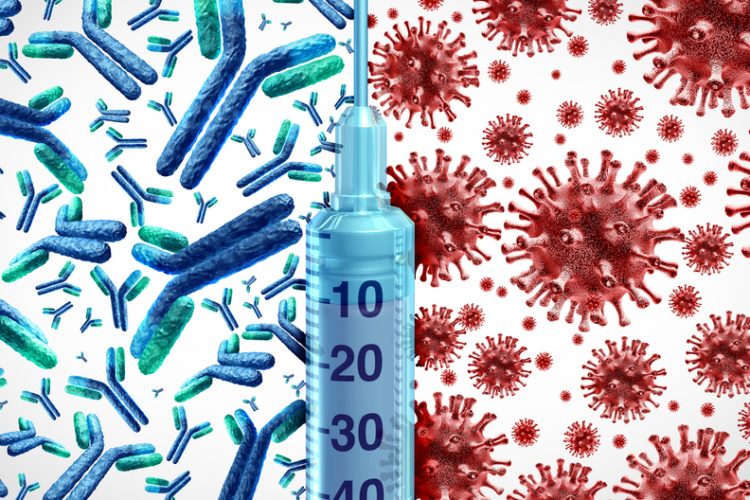Neutralising antibodies, a proxy for COVID-19 vaccine efficacy, shows study
Posted: 18 May 2021 | Hannah Balfour (European Pharmaceutical Review) | No comments yet
Researchers have shown that the early immune response in a person who has been vaccinated for COVID-19 can predict the level of protection they will have to the virus over time.


In a new analysis, researchers have identified an ‘immune correlate’ of vaccine protection. The team demonstrated that measuring neutralising antibody levels in response to a vaccine could be used as a proxy for immune protection from COVID-19.
The analysis was undertaken by researchers from University of New South Wales’ Kirby Institute, the Peter Doherty Institute for Infection and Immunity and the University of Sydney, all Australian, and published in Nature Medicine.
Dr Deborah Cromer from the Kirby Institute explained that while it has long been understood that antibodies, the Y-shaped proteins that can bind to SARS-CoV-2 (the virus that causes COVID-19) and neutralise it are key in our immune response to COVID-19, exactly how much antibody is needed for immunity is unknown. “Our work is the strongest evidence to date to show that specific antibody levels translate to high levels of protection from disease,” stated Dr Cromer.
In their paper, the researchers analysed data from seven COVID-19 vaccines to examine the how the response measured soon after vaccination correlated with protection. They then used statistical analysis to define the specific relationship between immune response and protection. According to the team, the result was remarkably accurate and able to predict the efficacy of a new vaccine.
According to Dr Cromer, this finding has the potential to change the way we conduct COVID-19 vaccine trials in the future: “Antibody immune levels are much easier to measure than directly measuring vaccine efficacy over time. So, by measuring antibody levels across the range of new vaccine candidates during early phases of clinical trials, we can better determine whether a vaccine should be used to prevent COVID-19.”
The team also explained that the importance of their study is that it showed COVID-19 vaccine boosters are likely to be needed within a year. The analysis suggested immunity provided by the vaccines will wane significantly within a year, with the level of neutralising antibodies in the blood dropping over the first few months following infection or vaccination.
“Vaccination works very well to prevent both symptoms and severe disease in the short to medium term, but efficacy is predicted to decline over the first few months for most of these vaccines,” explained Dr David Khoury, also from the Kirby Institute. “However, it is very important to understand the difference between immunity against infection and protection from developing severe disease. Our study found that a six-fold lower level of antibodies is required to protect against severe disease. So even though our analysis predicts that we will start losing immunity to mild infection in the first year after vaccination, protection from severe infection should be longer lived.” He added that despite this, for optimal protection against moderate COVID-19 and transmission of the virus, the findings suggest it will require annual vaccine boosters, similarly to influenza.
The team also commented on the challenge faced by the SARS-CoV-2 virus mutating and the emergence of new variants. According to the team, there is in vitro evidence based concerns that antibodies that have been developed against the ancestral strains are less effective at neutralising these new variants.
“An added advantage of our work is that allows us to predict how protective an immune response will be against different variants,” commented Professor Jamie Triccas from the University of Sydney’s Marie Bashir Institute and Faculty of Medicine and Health. “This analysis shows a very good correlation between the immune response – which is very easy to test for – and the efficacy of a vaccine in preventing infection, which is incredibly hard to test for. This means we can predict how protective an immune response will be against different variants, without having to determine efficacy against each variant in large and costly clinical trials. This work can facilitate decision making by providing the necessary data much earlier on in the vaccine development pipeline and in a far more efficient way.”
The authors did note that their study was limited because it analyses the relationship between early immune responses to infection/vaccination and protection from infection (from the limited data that is currently available), using this information to project how immunity will change in the future and in the response to different viral variants. They said that further research should aim to confirm these predictions as data becomes available.




